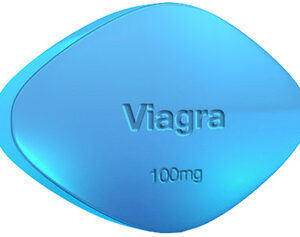Understanding Cialis
Cialis is the brand name for tadalafil, a medication used to treat erectile dysfunction (ED), benign prostatic hyperplasia (BPH), and pulmonary arterial hypertension. It belongs to a class of drugs called phosphodiesterase type 5 (PDE5) inhibitors.
Therapeutic Indications
Cialis is indicated for the treatment of erectile dysfunction (ED) and the signs and symptoms of benign prostatic hyperplasia (BPH). It is also prescribed in combination with finasteride for the initiation of BPH treatment. For pulmonary arterial hypertension, the brand name of tadalafil used is Adcirca.
Dosage Forms and Strengths
Cialis is available as almond-shaped tablets for oral use, in strengths of 2.5 mg, 5 mg, 10 mg, and 20 mg. The appropriate dosage is subject to the indication for use and clinical response of the individual patient.
Administration Guidelines
Cialis tablets should be taken orally, with or without food. For erectile dysfunction, Cialis can be taken as needed before sexual activity or once daily. For BPH, it is generally taken once daily. The timing of dosing relative to sexual activity is important to consider when taking Cialis as needed.
Mechanism of Action
Cialis works by inhibiting phosphodiesterase type 5 (PDE5), an enzyme found in the vascular smooth muscle, corpus cavernosum, pulmonary vasculature, and other tissues. By inhibiting PDE5, Cialis increases cyclic guanosine monophosphate (cGMP) levels, leading to relaxation of the smooth muscle in the corpus cavernosum and increased blood flow to the penis, thereby improving erectile function.
Pharmacokinetics
Absorption of Cialis is not significantly affected by food. The median time to achieve maximum plasma concentration (Tmax) is 2 hours post-dose. The bioavailability and rate of absorption increase with dose, but the extent of absorption does not. The half-life of Cialis is 17.5 hours, allowing for extended effectiveness.
Efficacy in Clinical Trials
Clinical trials have indicated that Cialis is effective in improving the ability to achieve and maintain an erection sufficient for sexual intercourse for up to 36 hours post-dosing. Improvement in BPH symptoms has been noted in trials, with reductions in symptoms scores compared to placebo.
Drug Interactions
Cialis can interact with nitrates, antihypertensives, CYP3A4 inhibitors and inducers, alpha-blockers, antacids, and alcohol, among others. Such interactions may enhance the hypotensive effects of nitrates or antihypertensive medications or alter the plasma levels of tadalafil.
Concomitant Medication Considerations
Concurrent use of Cialis with nitrates in any form is contraindicated due to the risk of hypotension. Caution should be exercised when Cialis is administered with alpha-blockers or antihypertensives. Adjustments in drug dosages may be necessary when Cialis is taken alongside CYP3A4 inhibitors or inducers.
Adverse Reactions and Side Effects
Common side effects of Cialis include headache, dyspepsia, back pain, myalgia, nasal congestion, flushing, and pain in limb. Sudden vision loss in one or both eyes, sudden hearing decrease or loss, and priapism (erections lasting longer than 4 hours) have been reported, though rare. If any of these serious side effects occur, medical attention should be sought immediately.
Considerations in Special Populations
In individuals with renal impairment or on renal dialysis, dose adjustments may be required. Cialis should be used with caution in patients with hepatic impairment. For older adults, a starting lowered dose of Cialis may be considered due to the potential for altered pharmacokinetics in this population.
Pregnancy and Lactation
Cialis is not indicated for use in women. It is not known if tadalafil is excreted into human milk. Tadalafil should not be used in pregnant women unless clearly needed and the benefit outweighs the risk to the fetus.
Effects on Ability to Drive and Use Machines
As dizziness has been reported in men taking Cialis in clinical studies, individuals should be aware of how they react to Cialis before driving or operating machinery.
Overdosage Management
In cases of overdose, standard supportive measures should be adopted as required. Hemodialysis contributes negligibly to tadalafil elimination. In clinical pharmacology studies, more subjects administered doses higher than the recommended doses experienced greater side effects.
Storage and Handling Instructions
Cialis should be stored at room temperature between 15°C and 30°C (59°F and 86°F). It should be kept out of reach of children and away from moisture and heat to preserve its efficacy and shelf-life. The medication should not be consumed beyond its expiration date.
Dispensing and Supply
As a prescription medication, Cialis should be dispensed by a licensed pharmacist in accordance with a valid prescription from a healthcare provider. It is available in blister packs and should be supplied in the original package to protect the tablets from moisture.






Reviews
There are no reviews yet.